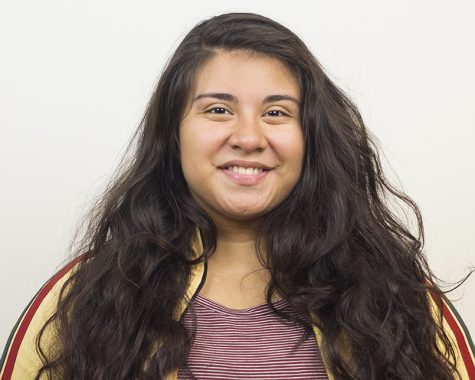Workgroup No. 9 holds second town hall meeting Tuesday
March 1, 2017
Workgroup No. 9, Academic Visioning II, held its second town hall meeting Tuesday evening presenting the Differential Tuition subcommittee’s and the Variable Learning Models subcommittee’s recommendations.
English professor Suzie Park, who led the presentation, said the general task of the workgroup seemed to be examining and renewing the current academic models, trying to see everything from a potential student’s point of view.
One of the recommendations from the Variable Learning Model subcommittee that brought up discussion among the audience was the idea to condense the current 15-week semester into a 13-week semester.
Park explained that this model would make faculty have to cram more content into a shorter amount of time, but in turn would leave time during the academic calendar for intercessional terms.
Workgroup chair Melinda Mueller, a political science professor, said the intercessional terms could be used in various ways such as time for students to take remedial courses or catch up on credit hours in order to graduate at their desired date.
With this recommendation came the idea to possibly have a three-week January term or three- to four-week May term for students to get ahead in their majors and resolve any conflicting course schedules.
The recommended fall term would begin two weeks later than the current date or possibly after Labor Day.
Park’s presentation displayed examples of academic calendars containing a description of what the intersessional terms and shortened spring and fall terms would look like.
In addition to the changes in the academic calendar, recommendations on extending the length of classes were also made. The idea brought some concern on being able to keep a class engaged for longer than the current time allotted for classes.
The idea of expanding the online course selection was also discussed. Park had said when she asked her own students about online classes, the feedback was in favor of the idea.
During the presentation, Park said online courses could potentially be offered in the aforementioned intersessional terms.
A majority of the feedback the workgroup received was positive, but the Mueller said the group also wants to work on reaching out to students for their own responses.
At the beginning of the meeting, Richard England, dean of the Honors College spoke briefly on behalf of the differential tuition subcommittee, suggesting the audience provide their individual ideas in the online survey on what could be changed regarding the current tuition system at Eastern.
The online surveys for both town hall meetings will be open until March 8 and are available on the Eastern Vitalization Project webpage.



















































